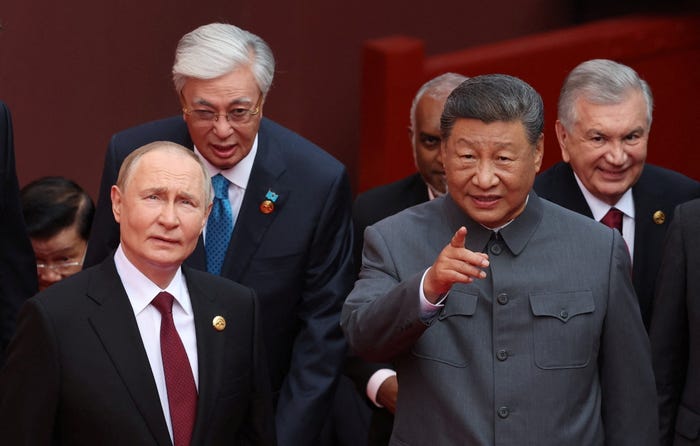Xi Jinping, Putin Discuss Immortality at Military Parade – What’s Next?

URGENT UPDATE: In a striking moment during a military parade in Beijing, Chinese President Xi Jinping and Russian President Vladimir Putin were overheard discussing the possibility of living to 150 years old. This conversation, captured on a hot mic, raises significant questions about the future of longevity research and its implications for humanity.
The parade, commemorating the 80th anniversary of Japan’s defeat in World War II, featured the two leaders alongside North Korea’s Kim Jong Un. As they ascended towards Tiananmen Gate, a translator revealed insights into advancements in biotechnology, suggesting that organ transplants could potentially allow humans to become “younger” over time. Xi responded that predictions indicate humans may reach ages of 150 within this century.
As discussions around longevity gain momentum, experts warn that while research is booming, significant breakthroughs may remain elusive. Investment in life extension has surged, with billions of dollars flowing into scientific studies. Yet, despite the enthusiasm, many researchers believe that human life expectancy gains are plateauing.
The landscape of longevity research is evolving. In 2023, David Sinclair, a genetics professor at Harvard Medical School, published findings suggesting that aging might be reversible in mice through cellular reprogramming. However, researchers caution that translating these results to humans is far from guaranteed. There is no current evidence that this technology can effectively combat aging in people.
Meanwhile, a study published in Nature suggests that dramatic life expectancy improvements are leveling off. From 1900 to 2000, life expectancy in the U.S. rose from 47 to 77 years. However, researchers now indicate that this rapid progress is slowing, particularly in wealthier nations. Lead study author S. Jay Olshansky has warned against claims of reaching 100 years, estimating that only 15% of women and 5% of men alive today may achieve that milestone.
Despite the sobering reality, the discourse around longevity continues to draw interest from influential figures. Companies like Google‘s Verily, Jeff Bezos‘ Altos Labs, and Sam Altman’s Retro Biosciences are actively pursuing solutions to extend life, although results remain speculative at best.
What does this mean for Xi and Putin’s aspirations? As these leaders ponder the possibility of extended life, the scientific community remains cautious. While optimism exists regarding advancements in anti-aging research, the consensus is clear: guaranteed solutions for significantly extending life remain out of reach.
Looking ahead, the conversation about longevity will likely intensify, fueled by both public interest and investment. As technology evolves and more studies emerge, the quest for extending human life will continue to captivate the world’s attention.
Stay tuned for further updates on this developing story as the implications of such discussions unfold.






